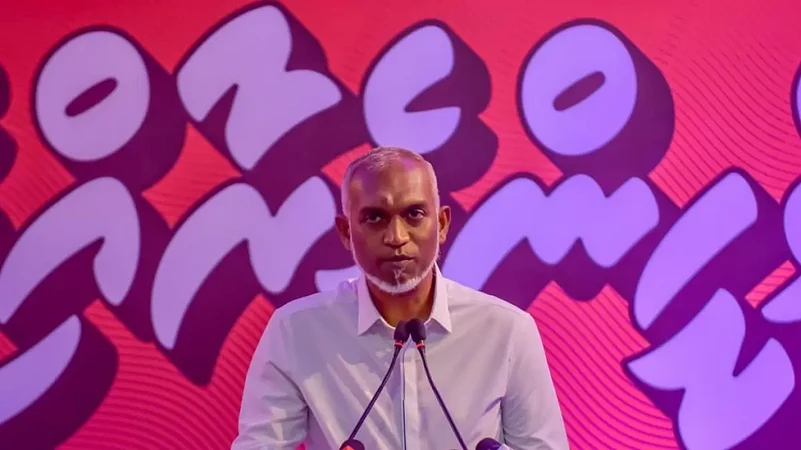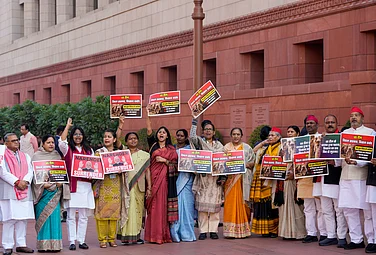Mohamed Muiz emerged victorious in the Maldives presidential runoff, securing over 53 percent of the votes, according to local media. The election took on a unique significance, evolving into a de facto referendum on the influence of regional powers, particularly India and China, in the Indian Ocean archipelago nation.
Incumbent President Ibrahim Mohamed Solih garnered 46 percent of the vote, with Muiz clinching victory by more than 18,000 votes. While official results were pending, Muiz expressed his commitment to building the country's future and urged unity for a peaceful society, AP reported.
Muiz's unexpected win marked a turnaround, as he was initially a fallback candidate nominated close to the deadline after the Supreme Court barred former President Abdulla Yameen from running due to a prison sentence for money laundering and corruption.
In the aftermath of his victory, Muiz called for Yameen's transfer from prison to house arrest, a move that added a layer of complexity to the political landscape. Yameen's supporters contend that his imprisonment is politically motivated.
The electoral dynamics centered around allegations by Muiz that Solih allowed unchecked Indian influence, a claim vehemently denied by Solih, who clarified that India's military presence was pursuant to an agreement between the two governments.
Muiz, from the People's National Congress, positioned his party as pro-China, promising a rebalance of trade relations and the removal of Indian troops if elected. Former Foreign Minister Ahmed Shaheed, however, interpreted the election verdict as a public expression of discontent with economic and governance issues rather than concerns over Indian influence.
While Muiz's victory suggests potential shifts in foreign policy, experts believe that substantial changes may be unlikely. Despite campaign rhetoric, it's anticipated that opposition to Chinese projects might soften, evening out power balances in the region.
The Maldives, comprising 1,200 coral islands strategically located in the Indian Ocean, holds geopolitical significance as a key point along major shipping routes between the East and West.
As the election unfolded, voters expressed varied sentiments. Some, like Abdul Muhusin, cited the past five years as the most peaceful and prosperous, favoring continuity with Solih. In contrast, Saeedh Hussein, a Muiz supporter, voiced a desire for the departure of the Indian military from the Maldives.
With over 282,000 eligible voters and a 78 percent turnout an hour before polls closed, the election underscored the importance of balancing regional influences while addressing domestic concerns.


























